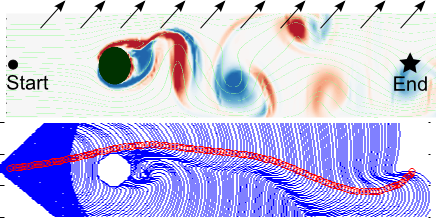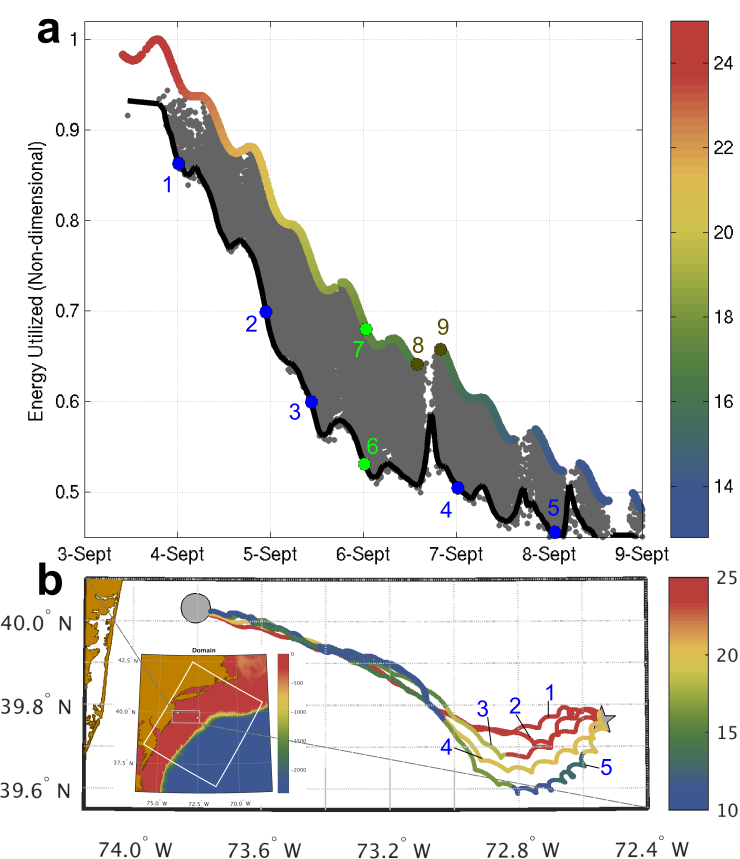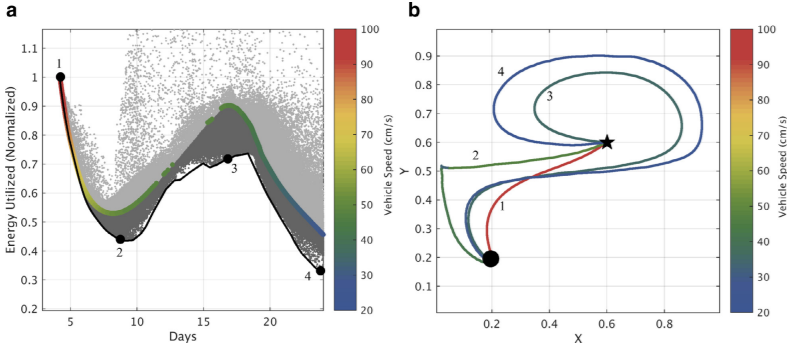Long-duration Environmentally-adaptive
Autonomous Rigorous Naval Systems (LEARNS)
|
P.F.J. Lermusiaux, P.J. Haley, Jr., T. Lolla, D.N. Subramani Massachusetts Institute of Technology
|
Project Summary Ongoing MIT-MSEAS Research MSEAS LEARNS-supported Publications Additional LEARNS Links Background Information

|
 |
|
| This research sponsored by the Science of Autonomy Program - Office of Naval Research. | |||
Project Summary
In the ocean domain, opportunities for a paradigm shift in the science of autonomy involve fundamental theory, rigorous methods and efficient computations for autonomous systems that collect information, learn, collaborate and make decisions under uncertainty, all in optimal integrated fashion and over long duration, persistently adapting to and utilizing the ocean environment. The corresponding basic research is the emphasis of the present project.
Our long-term goal is to develop and apply new theory, algorithms and computational systems for the sustained coordinated operation of multiple collaborative autonomous vehicles over long time durations in realistic multiscale nonlinear ocean settings such that the integrated naval system optimally collects observations, rigorously propagates information backward and forward in time, and accurately completes persistent learning, environmental adaptation, machine metacognition and decision making under uncertainty.
Background information is available below.
| Top of page |
Ongoing MIT-MSEAS Research
Presentations and Meetings
- MSEAS presentation for the Science of Autonomy meeting; Washington, DC; 11-13 August 2014 [PDF]
MSEAS LEARNS-supported Publications
| Top of page |
Additional LEARNS Links
- Science of Autonomy Program at ONR
- Autonomous Systems Innovation Summit
- Our own past A-MISSION Project Web-page which is the predecessor project related to the present LEARNS project
| Top of page |
Background Information
As humans, we often combine what we learn over time, and then make informed decisions and complete desired and new tasks. The learning over time, or backward and forward inference, is critical for long-term autonomy, especially in complex nonlinear settings that are ubiquitous in the ocean domain. Mathematically, all initial and acquired information, from both models and data, should be integrated in the form of posterior marginals of the variables of interest, while respecting nonlinearities. The accurate posterior probabilities then facilitate persistent learning, metacognition, informed decisions and tasks completion under uncertainty. Such rigorous nonlinear time-space integration of information and learning, and its application to sustained coordinated autonomous operations of multiple collaborative vehicles is a major focus of the present research. Challenges in our ocean domain arise due to the: complex nonlinear multiscale, multivariate ocean dynamics; large-dimension of the autonomy problems over long duration and large spatial extent; sparse, gappy and multivariate measurements; autonomous coordination and collaboration among heterogeneous vehicles into efficient swarms; and, integration of multiple disciplines into environmentally-adaptive, autonomous and rigorous naval systems.
| Top of page |





